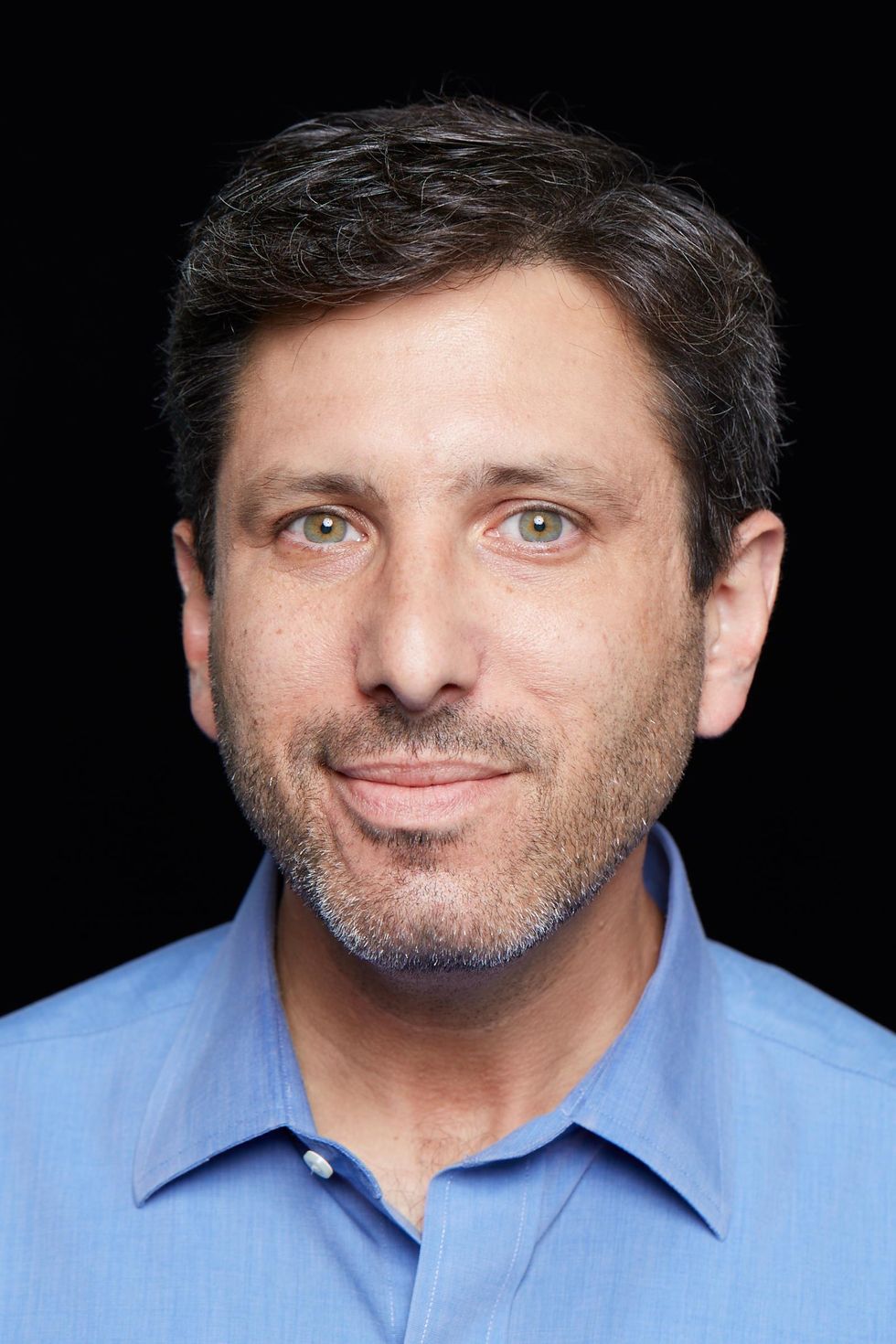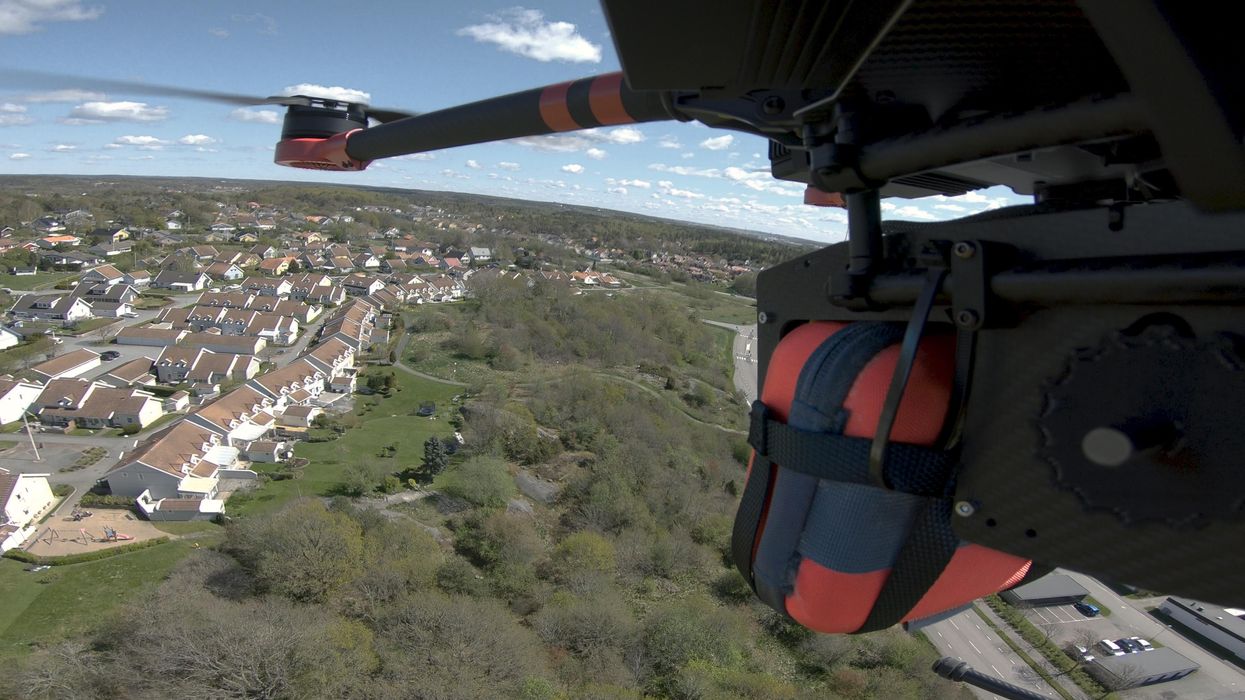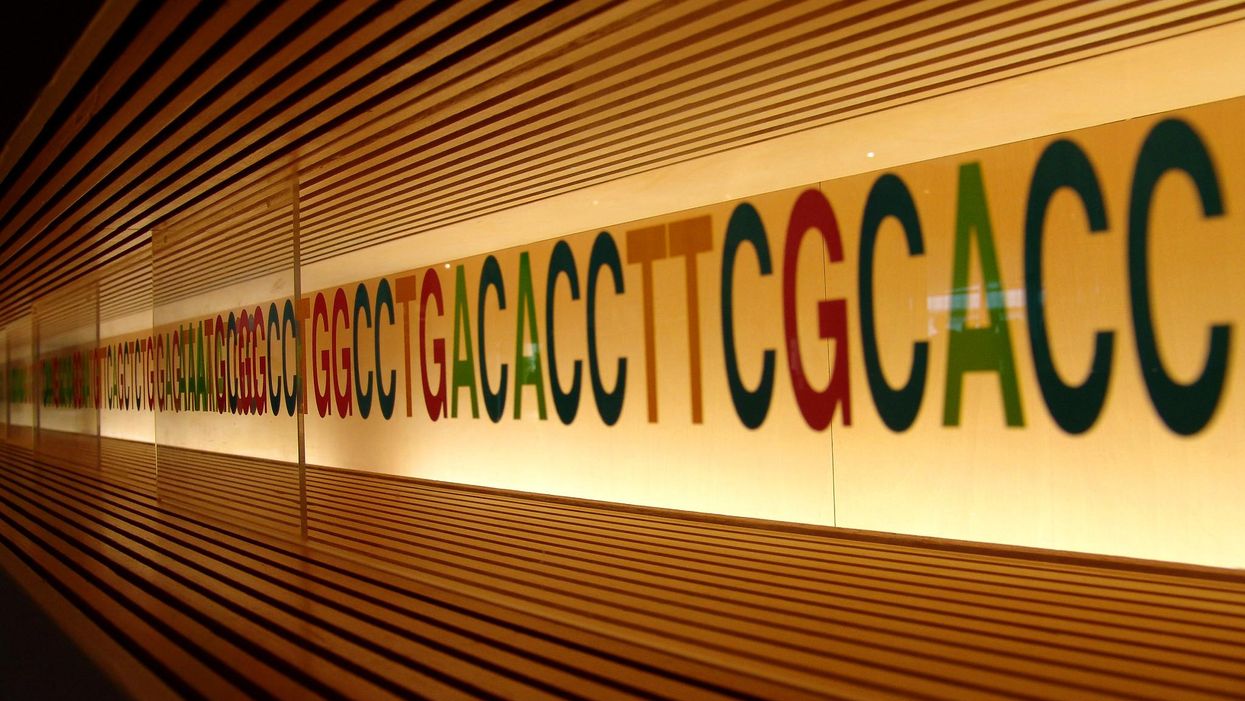Pregnant & Breastfeeding Women Who Get the COVID-19 Vaccine Are Protecting Their Infants, Research Suggests

Becky Cummings, who got vaccinated in December, snuggles her newborn, Clark, while he takes a nap.
Becky Cummings had multiple reasons to get vaccinated against COVID-19 while tending to her firstborn, Clark, who arrived in September 2020 at 27 weeks.
The 29-year-old intensive care unit nurse in Greensboro, North Carolina, had witnessed the devastation day in and day out as the virus took its toll on the young and old. But when she was offered the vaccine, she hesitated, skeptical of its rapid emergency use authorization.
Exclusion of pregnant and lactating mothers from clinical trials fueled her concerns. Ultimately, though, she concluded the benefits of vaccination outweighed the risks of contracting the potentially deadly virus.
"Long story short," Cummings says, in December "I got vaccinated to protect myself, my family, my patients, and the general public."
At the time, Cummings remained on the fence about breastfeeding, citing a lack of evidence to support its safety after vaccination, so she pumped and stashed breast milk in the freezer. Her son is adjusting to life as a preemie, requiring mother's milk to be thickened with formula, but she's becoming comfortable with the idea of breastfeeding as more research suggests it's safe.
"If I could pop him on the boob," she says, "I would do it in a heartbeat."
Now, a study recently published in the Journal of the American Medical Association found "robust secretion" of specific antibodies in the breast milk of mothers who received a COVID-19 vaccine, indicating a potentially protective effect against infection in their infants.
The presence of antibodies in the breast milk, detectable as early as two weeks after vaccination, lasted for six weeks after the second dose of the Pfizer-BioNTech vaccine.
"We believe antibody secretion into breast milk will persist for much longer than six weeks, but we first wanted to prove any secretion at all after vaccination," says Ilan Youngster, the study's corresponding author and head of pediatric infectious diseases at Shamir Medical Center in Zerifin, Israel.
That's why the research team performed a preliminary analysis at six weeks. "We are still collecting samples from participants and hope to soon be able to comment about the duration of secretion."
As with other respiratory illnesses, such as influenza and pertussis, secretion of antibodies in breast milk confers protection from infection in infants. The researchers expect a similar immune response from the COVID-19 vaccine and are expecting the findings to spur an increase in vaccine acceptance among pregnant and lactating women.
A COVID-19 outbreak struck three families the research team followed in the study, resulting in at least one non-breastfed sibling developing symptomatic infection; however, none of the breastfed babies became ill. "This is obviously not empirical proof," Youngster acknowledges, "but still a nice anecdote."
Leaps.org inquired whether infants who derive antibodies only through breast milk are likely to have a lower immunity than infants whose mothers were vaccinated while they were in utero. In other words, is maternal transmission of antibodies stronger during pregnancy than during breastfeeding, or about the same?
"This is a different kind of transmission," Youngster explains. "When a woman is infected or vaccinated during pregnancy, some antibodies will be transferred through the placenta to the baby's bloodstream and be present for several months." But in the nursing mother, that protection occurs through local action. "We always recommend breastfeeding whenever possible, and, in this case, it might have added benefits."
A study published online in March found COVID-19 vaccination provided pregnant and lactating women with robust immune responses comparable to those experienced by their nonpregnant counterparts. The study, appearing in the American Journal of Obstetrics and Gynecology, documented the presence of vaccine-generated antibodies in umbilical cord blood and breast milk after mothers had been vaccinated.
Natali Aziz, a maternal-fetal medicine specialist at Stanford University School of Medicine, notes that it's too early to draw firm conclusions about the reduction in COVID-19 infection rates among newborns of vaccinated mothers. Citing the two aforementioned research studies, she says it's biologically plausible that antibodies passed through the placenta and breast milk impart protective benefits. While thousands of pregnant and lactating women have been vaccinated against COVID-19, without incurring adverse outcomes, many are still wondering whether it's safe to breastfeed afterward.
It's important to bear in mind that pregnant women may develop more severe COVID-19 complications, which could lead to intubation or admittance to the intensive care unit. "We, in our practice, are supporting pregnant and breastfeeding patients to be vaccinated," says Aziz, who is also director of perinatal infectious diseases at Stanford Children's Health, which has been vaccinating new mothers and other hospitalized patients at discharge since late April.
Earlier in April, Huntington Hospital in Long Island, New York, began offering the COVID-19 vaccine to women after they gave birth. The hospital chose the one-shot Johnson & Johnson vaccine for postpartum patients, so they wouldn't need to return for a second shot while acclimating to life with a newborn, says Mitchell Kramer, chairman of obstetrics and gynecology.
The hospital suspended the program when the Food and Drug Administration and the Centers for Disease Control and Prevention paused use of the J&J vaccine starting April 13, while investigating several reports of dangerous blood clots and low platelet counts among more than 7 million people in the United States who had received that vaccine.
In lifting the pause April 23, the agencies announced the vaccine's fact sheets will bear a warning of the heightened risk for a rare but serious blood clot disorder among women under age 50. As a result, Kramer says, "we will likely not be using the J&J vaccine for our postpartum population."
So, would it make sense to vaccinate infants when one for them eventually becomes available, not just their mothers? "In general, most of the time, infants do not have as good of an immune response to vaccines," says Jonathan Temte, associate dean for public health and community engagement at the University of Wisconsin School of Medicine and Public Health in Madison.
"Many of our vaccines are held until children are six months of age. For example, the influenza vaccine starts at age six months, the measles vaccine typically starts one year of age, as do rubella and mumps. Immune response is typically not very good for viral illnesses in young infants under the age of six months."
So far, the FDA has granted emergency use authorization of the Pfizer-BioNTech vaccine for children as young as 16 years old. The agency is considering data from Pfizer to lower that age limit to 12. Studies are also underway in children under age 12. Meanwhile, data from Moderna on 12-to 17-year-olds and from Pfizer on 12- to 15-year-olds have not been made public. (Pfizer announced at the end of March that its vaccine is 100 percent effective in preventing COVID-19 in the latter age group, and FDA authorization for this population is expected soon.)
"There will be step-wise progression to younger children, with infants and toddlers being the last ones tested," says James Campbell, a pediatric infectious diseases physician and head of maternal and child clinical studies at the University of Maryland School of Medicine Center for Vaccine Development.
"Once the data are analyzed for safety, tolerability, optimal dose and regimen, and immune responses," he adds, "they could be authorized and recommended and made available to American children." The data on younger children are not expected until the end of this year, with regulatory authorization possible in early 2022.
For now, Vonnie Cesar, a family nurse practitioner in Smyrna, Georgia, is aiming to persuade expectant and new mothers to get vaccinated. She has observed that patients in metro Atlanta seem more inclined than their rural counterparts.
To quell some of their skepticism and fears, Cesar, who also teaches nursing students, conceived a visual way to demonstrate the novel mechanism behind the COVID-19 vaccine technology. Holding a palm-size physical therapy ball outfitted with clear-colored push pins, she simulates the spiked protein of the coronavirus. Slime slathered at the gaps permeates areas around the spikes—a process similar to how our antibodies build immunity to the virus.
These conversations often lead hesitant patients to discuss vaccination with their husbands or partners. "The majority of people I'm speaking with," she says, "are coming to the conclusion that this is the right thing for me, this is the common good, and they want to make sure that they're here for their children."
CORRECTION: An earlier version of this article mistakenly stated that the COVID-19 vaccines were granted emergency "approval." They have been granted emergency use authorization, not full FDA approval. We regret the error.
An autonomous drone carrying an automated external defibrillator travels to a cardiac emergency in Sweden.
Picture this: your medical first responder descends from the sky like a friendly, unmanned starship. Hovering over your door, it drops a device with recorded instructions to help a bystander jumpstart your heart that has stopped. This, after the 911 call but before the ambulance arrives.
This is exactly what happened on Dec. 9, 2021, when a 71-year-old man in Sweden suffered a cardiac arrest while shoveling snow. A passerby, seeing him collapse, called for an ambulance. In just over three minutes, a drone swooped overhead carrying an Automated External Defibrillator (AED). The patient was revived on the spot before the ambulance arrived to rush him to the hospital where he made a full recovery. The revolutionary technology saved his life.
In 2020, Sweden became the first country to deploy drones carrying AEDs to people in sudden cardiac arrest, when survival odds depend on getting CPR and an electric shock to the heart from a defibrillator within 5 minutes—nearly always before emergency responders arrive.
In the U.S. alone, more than 356,00 cardiac arrests occur outside of hospitals each year; 9 out of 10 of these people die. Plus, the risk of permanent brain injury increases after the first three minutes the heart stops beating. After nine minutes, damage to the brain and other organs is usually severe and irreversible.
“The fundamental technology can be applied to a lot of other emergency situations.”
Once the stuff of sci fi, the delivery of life-saving medical equipment by drone will be commonplace in the near future, experts say. The Swedish team is hailing their study as the first-ever proof of concept for using drones in emergency medicine. The drones arrived only two minutes before the ambulance in most cases but that’s significant during cardiac arrest when survival rates drop 10% every minute.
Since that 2020 pilot, the drones have been tweaked for better performance. They can travel faster and after dark today, and route planning has been optimized, says Mats Sällström, chief executive officer of Everdrone, the technical and development guru for the project, who is collaborating with researchers at the Karolinska Institutet and Sweden’s national emergency call center, SOS Alarm.
When an emergency call comes in, the operator determines if it’s a cardiac arrest. If so, the caller gets CPR instructions while an ambulance is summoned and a control center is notified automatically to dispatch a drone. If conditions allow, the drone flies to the scene via a GPS signal from the caller’s cell phone. Once dropped at the location, the AED beeps to signal its arrival. The AED talks the user through every step when it’s opened while the emergency operator offers support.
Public health officials have tried placing AEDs in public spaces like airports and shopping malls for quick access but the results have been disappointing. Poor usage rates of 2% to 3% have been attributed to bystanders not knowing where they are, not wanting to leave victims, or the site being closed when needed.
Some people fear they could harm the victim or won’t know how to use the AED but not to worry, says Wayne Rosamond, a professor of epidemiology at the University of North Carolina Gillings School of Global Public Health, who studies AED drones. “[The device] won’t shock someone unless they need to be shocked,” he says.
The AED instructions are foolproof, echoes Timothy Chan, professor of engineering at the University of Toronto, who has been building optimization models to design drone networks in Ontario, Canada. All the same, he says, community education will be essential for success. “People have more awareness about drones than AEDs,” he’s found.
Rosamond and Chan are among scientists around the world inspired by Sweden to do their own modeling, simulation and feasibility studies on drone-delivered AEDs.
“Scandinavia is way ahead of us,” notes Rosamond. “There is a tremendous amount of regulatory control over flying drones in the U.S.” In addition to Federal Aviation Administration restrictions, medical drones in the U.S. must comply with HIPAA laws surrounding confidentiality and security of patient information.
To date, Sweden has expanded drone operations and home bases around the country and throughout Europe. Since April 2021, the team has deployed 1-4 drones per week, says Sällström.
Certain weather conditions remain an obstacle. The drones cannot be dispatched safely in rain, snow and heavy wind. Close, heavily populated neighborhoods with high-rise buildings also present challenges.
“Semi-urban areas with residential low-rise [1-5 stories] buildings are the sweet spot for our operations,” Sällström says. “However, as the system matures, we will pursue operations in practically all-weather conditions and also in densely populated areas.” The team is also trying to improve drone speed and battery life to enable flights to rural and remote areas in the future.
Chan predicts that delivering AEDs via drone will be a regular occurrence in five years. In addition, he says, “The fundamental technology can be applied to a lot of other emergency situations.”
Drones could carry medications for anaphylactic shock and opioid overdose, or bring tourniquets and bandages to trauma victims, Chan suggests. Other researchers are looking at the delivery of glucose for low blood sugar emergencies and the transport of organs for transplant.
The sky is no longer the limit.
6 Biotech Breakthroughs of 2021 That Missed the Attention They Deserved
A string of the code that comprises a DNA molecule, pictured at Miraikan, the National Museum of Emerging Science and Innovation in Japan.
News about COVID-19 continues to relentlessly dominate as Omicron surges around the globe. Yet somehow, during the pandemic’s exhausting twists and turns, progress in other areas of health and biotech has marched on.
In some cases, these innovations have occurred despite a broad reallocation of resources to address the COVID crisis. For other breakthroughs, COVID served as the forcing function, pushing scientists and medical providers to rethink key aspects of healthcare, including how cancer, Alzheimer’s and other diseases are studied, diagnosed and treated. Regardless of why they happened, many of these advances didn’t make the headlines of major media outlets, even when they represented turning points in overcoming our toughest health challenges.
If it bleeds, it leads—and many disturbing stories, such as COVID surges, deserve top billing. Too often, though, mainstream media’s parallel strategy seems to be: if it innovates, it fades to the background. But our breakthroughs are just as critical to understanding the state of the world as our setbacks. I asked six pragmatic yet forward-thinking experts on health and biotech for their perspectives on the most important, but under-appreciated, breakthrough of 2021.
Their descriptions, below, were lightly edited by Leaps.org for style and format.
New Alzheimer's Therapies

Mary Carrillo, Chief Science Officer at the Alzheimer’s Association
Alzheimer's Association
One of the biggest health stories of 2021 was the FDA’s accelerated approval of aducanumab, the first drug that treats the underlying biology of Alzheimer’s, not just the symptoms. But, Alzheimer’s is a complex disease and will likely need multiple treatment strategies that target various aspects of the disease. It’s been exciting to see many of these types of therapies advance in 2021.
Following the FDA action in June, we saw renewed excitement in this class of disease-modifying drugs that target beta-amyloid, a protein that accumulates in the brain and leads to brain cell death. This class includes drugs from Eli Lilly (donanemab), Eisai (lecanemab) and Roche (gantenerumab), all of which received Breakthrough Designation by the FDA in 2021, advancing the drugs more quickly through the approval process.
We’ve also seen treatments advance that target other hallmarks of Alzheimer’s this year. We heard topline results from a phase 2 trial of semorinemab, a drug that targets tau tangles, a toxic protein that destroys neurons in the Alzheimer’s brain. Plus, strategies targeting neuroinflammation, protecting brain cells, and reducing vascular contributions to dementia – all funded through the Alzheimer's Association Part the Cloud program – advanced into clinical trials.
The future of Alzheimer’s treatment will likely be combination therapy, including drug therapies and healthy lifestyle changes, similar to how we treat heart disease. Washington University announced they will be testing a combination of both anti-amyloid and anti-tau drugs in a first-of-its-kind clinical trial, with funding from the Alzheimer’s Association.
AlphaFold

Olivier Elemento, Director of the Caryl and Israel Englander Institute for Precision Medicine at Cornell University
Cornell University
AlphaFold is an artificial intelligence system designed by Google’s DeepMind that opens the door to understanding the three-dimensional structures and functions of proteins, the building blocks that make up almost half of our bodies' dry weight. In 2021, Google made AlphaFold available for free and since then, researchers have used it to drive greater understanding of how proteins interact. This is a foundational event in the field of biotech.
It’s going to take time for the benefits from AlphaFold to transpire, but once we know the 3-D structures of proteins that cause various diseases, it will be much easier to design new drugs that can bind to these proteins and change their activity. Prior to AlphaFold, scientists had identified the 3-D structure of just 17 percent of about 20,000 proteins in the body, partly because mapping the structures was extremely difficult and expensive. Thanks to AlphaFold, we’ve now jumped to knowing – with at least some degree of certainty – the protein structures of 98.5 percent of the proteome.
For example, kinases are a class of proteins that modify other proteins and are often aberrantly active in cancer due to DNA mutations. Some of the earliest targeted therapies for cancer were ones that block kinases but, before AlphaFold, we had only a premature understanding of a few hundred kinases. We can now determine the structures of all 1,500 kinases. This opens up a universe of drug targets we didn’t have before.
Additional progress has been made this year toward potentially using AlphaFold to develop blockers of certain protein receptors that contribute to psychiatric illnesses and other neurological diseases. And in July, scientists used AlphaFold to map the dimensions of a bacterial protein that may be key to countering antibiotic resistance. Another discovery in May could be essential to finding treatments for COVID-19. Ongoing research is using AlphaFold principles to create entirely new proteins from scratch that could have therapeutic uses. The AlphaFold revolution is just beginning.
Virtual First Care

Jennifer Goldsack, CEO of Digital Medicine Society
Digital Medicine Society
Imagine a new paradigm of healthcare defined by how good we are at keeping people healthy and out of the clinic, not how good we are at offering services to a sick person at the clinic. That is the promise of virtual-first care, or V1C, what I consider to be the greatest, and most underappreciated, advance that occurred in medicine this year.
V1C is defined as medical care accessed through digital interactions where possible, guided by a clinician, and integrated into a person’s everyday life. This type of care includes spit kits mailed for laboratory tests and replacing in-person exams with biometric sensors. It’s built around the patient, not the clinic, and provides us with the opportunity to fundamentally reimagine what good healthcare looks like.
V1C flew under the radar in 2021, eclipsed by the ongoing debate about the value of telehealth more broadly as we emerge from the pandemic. However, the growth in the number of specialty and primary care virtual-first providers has been matched only by the number of national health plans offering virtual-first plans. Our own virtual-first community, IMPACT, has tripled in size, mirroring the rapid growth of the field driven by patient demand for care on their terms.
V1C differs from the ‘bolt on’ approach of video visits as an add-on to traditional visit-based, episodic care. V1C takes a much more holistic approach; it allows individuals to initiate care at any time in any place, recognizing that healthcare needs extend beyond 9-5. It matches the care setting with each individual’s clinical needs and personal preferences, advancing a thorough, evidence-based, safe practice while protecting privacy and recognizing that patients’ expectations have changed following the pandemic. V1C puts the promise of digital health into practice. This is the blueprint for what good healthcare looks like in the digital era.
Digital Clinical Trials

Craig Lipset, Founder of Clinical Innovation Partners and former Head of Clinical Innovation at Pfizer
Craig Lipset
In 2021, a number of digital- and data-enabled approaches have sustained decentralized clinical trials around the world for many different disease types. Pharma companies and clinical researchers are enthusiastic about this development for good reason. Throughout the pandemic, these decentralized trials have allowed patients to continue in studies with a reduced need for site visits, without compromising their safety or data quality.
Risk-based monitoring was deployed using data and thoughtful algorithms to identify quality and safety issues without relying entirely on human monitors visiting research sites. Some trials used digital measures to ensure high quality data on target health outcomes that could be captured in ways that made the participants’ physical location irrelevant. More than three-quarters of research organizations, such as pharma and biotech, have accelerated their decentralized clinical trial strategies. Before COVID-19, 72 percent of trial sites “rarely or never” used telemedicine for trial participants; during COVID, 64 percent “sometimes, often or always” do.
While the research community does appreciate the tremendous hope and promise brought by these innovations, perhaps what has been under-appreciated is the culture shift toward thoughtful risk-taking and a willingness to embrace and adopt clinical trial innovations. These solutions existed before COVID, but the pandemic shifted the perception of risks versus benefits involved in these trials. If there is one breakthrough that is perhaps under-appreciated in life sciences clinical research today, it’s the power of this new culture of willingness and receptivity to outlast the pandemic. Perhaps the greatest loss to the research ecosystem would be if we lose the momentum with recent trial innovations and must wait for another global pandemic in order to see it again.
Designing Biology

Sudip Parikh, CEO of the American Association for the Advancement of Science and Executive Publisher of the Science family of journals
American Association for the Advancement of Science
As our understanding of basic biology has grown, we are fast approaching an era where it will be possible to design and direct biological machinery to create treatments, medicine, and materials. 2021 saw many breakthroughs in this area, three of which are listed below.
The understanding of the human microbiome is growing as is our ability to modify it. One example is the movement toward the notion of the “bug as the drug.” In June, scientists at the Brigham and Women’s Hospital published a paper showing that they had genetically engineered yeast – using CRISPR/Cas9 – to sense and treat inflammation in the body to relieve symptoms of irritable bowel syndrome in mice. This approach could potentially be used to address issues with your microbiome to treat other chronic conditions.
Another way in which we saw the application of basic biology discoveries to real world problems in 2021 is through groundbreaking research on synthetic biology. Several institutions and companies are pursuing this path. Ginkgo Bioworks, valued at $15 billion, already claims to engineer cells with assembly-line efficiency. Imagine the possibilities of programming cells and tissue to perform chemistry for the manufacturing process, inspired by the way your body does chemistry. That could mean cleaner, more controllable, and affordable ways to manufacture food, therapeutics, and other materials in a factory-like setting.
A final example: consider the possibility of leveraging the mechanics of your own body to deliver proteins as treatments, vaccines, and more. In 2021, several scientists accelerated research to apply the mRNA technology underlying COVID-19 vaccines to make and replace proteins that, when they’re missing or don’t work, cause rare conditions such as cystic fibrosis and multiple sclerosis.
These applications of basic biology to solve real world problems are exciting on their own, but their convergence with incredible advances in computing, materials, and drug delivery hold the promise of game-changing progress in health care and beyond.
Brain Biomarkers

David R. Walt, Professor of Biologically Inspired Engineering, Harvard Medical School, Brigham and Women’s Hospital, Wyss Institute at Harvard University
David Walt
2021 brought the first real hope for identifying biomarkers that can predict neurodegenerative disease. Multiple biomarkers (which are measurable indicators of the presence or severity of disease) were identified that can diagnose disease and that correlate with disease progression. Some of these biomarkers were detected in cerebrospinal fluid (CSF) but others were measured directly in blood by examining precursors of protein fibers.
The blood-brain barrier prevents many biomolecules from both exiting and entering the brain, so it has been a longstanding challenge to detect and identify biomarkers that signal changes in brain chemistry due to neurodegenerative disease. With the advent of omics-based approaches (an emerging field that encompasses genomics, epigenomics, transcriptomics, proteomics, and metabolomics), coupled with new ultrasensitive analytical methods, researchers are beginning to identify informative brain biomarkers. Such biomarkers portend our ability to detect earlier stages of disease when therapeutic intervention could be effective at halting progression.
In addition, these biomarkers should enable drug developers to monitor the efficacy of candidate drugs in the blood of participants enrolled in clinical trials aimed at slowing neurodegeneration. These biomarkers begin to move us away from relying on cognitive performance indicators and imaging—methods that do not directly measure the underlying biology of neurodegenerative disease. The identity of these biomarkers may also provide researchers with clues about the causes of neurodegenerative disease, which can serve as new targets for drug intervention.

